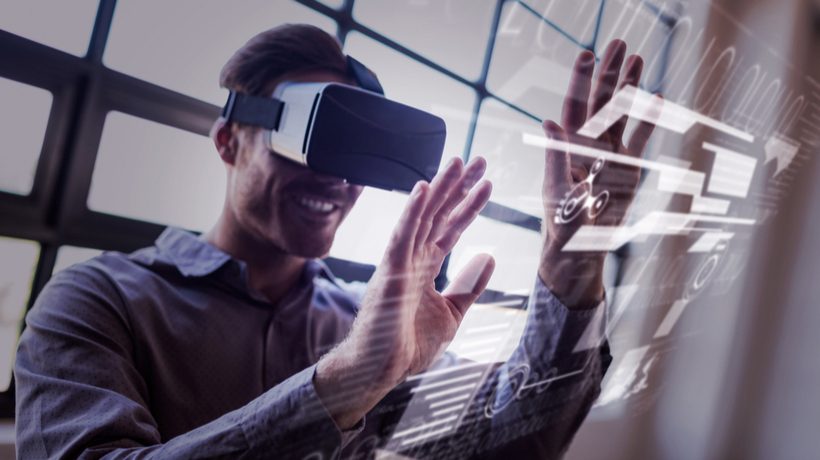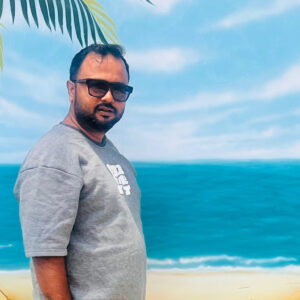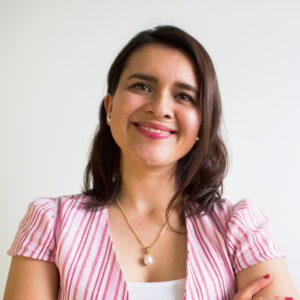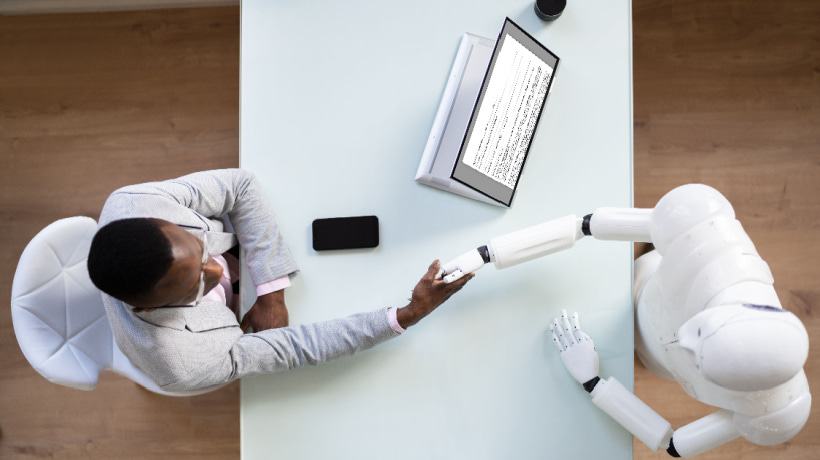Narrative And Storytelling In Virtual Reality
This is what Rafael Pavon, creative director at Future Lighthouse, told us about the use of narrative and storytelling in Virtual Reality (VR).
"We completed two years in May 2017. At first, we were working on projects for third parties, especially for the Ministry of Time, which is one of the pieces we took out in April 2016 and includes a really strong part of narrative. But we are now focusing on our own content and that will take time. We know that the process of Virtual Reality is very long, but I believe that we will soon bring something out there."
"Actually in the first year we tried to find out how to narrate stories of Virtual Reality, since there are many conventions that are no longer worth it. In the past, they tried to adapt VR to films or novels and it did not work. There are things that do work and are common in all mentioned before , but VR narrating is a totally new language. Therefore, we focused on learning first, seeing and observing the mistakes others made, and then learning to try to define where the industry goes with this new language; which is not the language of a movie, nor a video game, nor theater, but it has something in common with all these. We want to create stories that use this medium in the best way possible. We want to use all possibilities the medium has, as many as they may be including those we cannot even dream of now."
What Is Virtual Reality?
"It's rather complicated to explain what Virtual Reality is. There is a saying used widely in the world of Virtual Reality: 'Talking about virtual reality is like dancing about architecture'. It is very difficult to say what Virtual Reality is, because every time you explain what a video is in Virtual Reality, it is very likely you go crazy. VR has offered you the chance to experience really intense moments, much more than you can get to feel during a movie, and that's the part where you may sound crazy; you've lived things, but you have not watched how others may have experienced them. And that's where the real difference stands: The immersion and your presence within that world. This is why it is now a new language."
"Very few things have been written about it and there have been very few films that can get inside of you and be present. So, that gives you a high potential to feel things, to make you feel empathy. This is the most obvious and powerful thing right now; feeling empathy for other people, experiencing other realities, making you feel what it would be like to be in places you would never be able to be, either due to the fact that they do not exist in reality or because they existed in the past and have already disappeared."
"The potential for education, thus, is undeniable. Being able to teach the solar system instead of drawing it on a blackboard, through visiting a place where you are flying over the solar system and being able to actually see how the rings of Saturn were created, what was the origin of the solar system, how it expanded, but mostly seeing you being there, is at least unbeatable. There will not be a better instrument of education in all history. I do not know what the drawback may be, but traditional schools are probably going to have difficulties. Or they may get adapted, who knows. The decision is whether Stephen Hawking will teach my kids physics or someone else will do so on a blackboard. You will see a difference between the students who will learn by using Virtual Reality and those who will not. There will be a major gap right there, because the latter will not have lived in the VR experience."
"What we do is trying to bring the narrative or technology possibilities to the extreme. Many traditional media are now still being adapted. They are trying to produce what is called 'faster horses'; they are not making 'conventional cars" anymore. They have studied the past and try to keep up with the advances and adapt accordingly, so there has definitely been a boom. But the procedure is not easy for anyone. The key here is to find a way to create content that is familiar, take advantage of those technologies, and then reach the place where we try to create things that have a strong emotional connection. We can do this by using the contradictory structure of storytelling, which is more than 4000 years old. We realize it will be hard for us to get there if we do this through the use of this new language now."
"The example we usually use is that in the cinema it took us more than 15 years to learn to cope. No one could think of a second plan back then. Now, we are in a similar situation and it will take a while until the technology becomes well adopted, so that new conventions are created, and we all learn what the keys are. What we're trying to do is to find that language and apply it as best as we can, little by little."
The Narrative In Virtual Reality
"A conclusion has recently been reached that is likely for the narrative in VR to extend more, more broadly than it seems and is now, but it helps a lot to understand this term and what the four types of stories that can be told are. The two most important values are presence and impact. These are whether, for example, you are part of the world or not, whether you impact it or not. You can be a ghost without impact, that is, no one sees you, you cannot change anything, you are a privileged observer. You can be an observer who can change things and you can also be a character without impact or even a character with impact."
"Then, by playing with those variables, you can create different ways to experience the world. In reality, the technological limitations disappear every three months and the possibilities expand. There are sensors of all kinds, such as those used to sense your movement or those that follow your movement and so on so forth."
"Then, you can move or just move your hands. It will not take long until there are sensors for your heartbeat, for your gaze and where you look at exactly, apart from those already available, which sense where you have your head. All that will add new elements of interaction that we cannot even imagine right now, until we get to the point that you neuronally know if you are excited, if you are afraid, how much fear you feel, etc. Possibilities are infinite and every year they will grow concerning what we can receive from this world."
"Now, like any other tool that is just starting out, it is entering in a very 'organic' way, little by little, in all sectors that see it as a possible thing to use. In fact, Virtual Reality is the first thing that was used in video games and in the military. Obviously, much more progress has been made in the military than we know now, because the specific investment is billions and they have the best scientists; but sooner or later, it will definitely enter the world of sports too. I can't say to what extent that will happen since technology will set the limits."
Virtual Reality In Early Childhood Education
"As we focus more on narrative, scripts, stories we write, or stories of others, education is not the field we deal with mostly, but without a doubt it is one of the two or three fields that is going to be more developed. You can see that it will almost destroy the education industry in a very short time."
"By now, the issue of putting VR glasses on children is delicate. I still think that we have to do more tests and I think children should be of minimum age of 10 years or 12 years old. There has not been so much progress there, especially since we are now also working on the optics. Right now we are like being in the era of the 'brick' phones, basically. The next wave will come in late 2017, when the issue of the lenses will be discussed much more broadly. These lenses, for adults, may be harmless for now since they do not seem to cause any problems. Though, we do have to make sure that these things do not affect students. Yes, it is true that in May of 2016 I saw a company -I cannot remember the name right now- which wanted to start having educational content in VR, and they were launching it. People, although they had nothing to show, entered and began to do PR, saying 'We are here'. I imagine it is the same as when YouTube started with a couple of videos only due to the fact that everyone else was trying to develop. But today, developing something for 4-minute VRs can take six months or more, since it depends on what you're doing. Then, by the end of 2016, specifically in October, there was an avalanche because the first serious VR hull came out and since then it has become unstoppable."
"I am convinced that with the help of the Virtual Reality a new way of teaching will emerge. It is not possible that we keep learning in the same way. Regardless of Virtual Reality, not everything is based on literal memory. It does not fit the new reality of people. Probably, there will be a chance that you will be able to experience the Second World War. You will not be told about it, but you will be able to see the troops, see the maps and how things happened, and you will be able to see Hitler's bunker, just as there will be experiences about refugees in Syria. In the end, there are many things that no matter how well you describe them, you cannot ever understand them fully, such as how a war really is. Luckily, nowadays not many of us have experienced any wars and it is only through the movies that we get an idea. Though being in a war is something different."
Virtual Reality Ιn Τraining
"In March of 2016, a medical college in London, probably the Imperial College, did the first retransmission of a virtual reality surgery. Normally, the surgeon has one or two very lucky students looking over his shoulder, in case they see something needed. Now, on the one hand, the surgeon himself has a camera and all the students are all over following that surgery from the beginning. This has never happened before. But then, on the other hand, you can start studying by entering into the body, like when we saw the cartoon series Once upon a life, the human body; you create scanners of the body, you go inside and you find the problem. For instance, you have the heart, on a scale of a building, and you move it until you actually find the problem or the artery that was blocked. Obviously, they have to improve the technologies of the scanners, but they are already being tested, so that you can detect, for example, cancer on even very small scales, when sometimes it is not easily visible to the human eye. But if you enter the body with the help of Virtual Reality, you are able to see it clearly."
"Any kind of simulation will no longer exist. Any simulation, in front of this is useless, because you manipulate objects naturally, you move naturally, you walk in a natural manner. There can be no simulator, unless it is very specific already, in order to improve this experience."
Virtual Reality And Custom Learning
"It depends on how the educational systems are created, but the student is more likely to finish school, reach his own conclusions, and be the one looking for the answers. In fact, it will be much easier to follow up and see where each student fails, or what the problem is if a student does not make progress. The most interesting part is when focusing on why some of the students neither progress nor adapt to the reality in order to develop more easily. You can see that if you consider the dynamics of video games for example. There are gamers who cannot advance, but do have the ability to move forward just by reducing the level of difficulty. There is a thousand ways you can use this knowledge."
"A student who wants to progress is very likely to be able to do so. These predictions are complicated, but technology can assist a student who really wants to improve much, who likes to discover and likes to be active, to do so without any implications. Those students are not going to spend time passively. In Spain, there is a problem with that, and I do not know if they would all be gifted, but of course there is a very serious problem there. "
"There is the possibility to completely modify the whole world for each student and make it more interesting, and if you like in different kinds of colors, or with photos of their family; can't really say how to channel all that, but the possibility of tracking or adapting it, are two things that already exist at a very powerful level in video games and in VR movies. This would be a quite natural evolution."
Virtual Reality In Special Education
"In special education, it has already been applied. There are several examples on YouTube where you can find how they can use an application to autistic children that is called Google Tilt Brush with which you paint and it is quite more impressive than it seems when they express it orally. Autistic children translate their level of pain, how they measure their situation, from 9 to 6, while they are experiencing it, and so on. Luckily, there are some major advance right there and it has become obvious it is already developing successfully."
"They are practicing treatments with Virtual Reality for vertigo, claustrophobia, arachnophobia, and severe paranoias. The ability to enter a Virtual Reality situation in many cases causes all those feelings. The individual, considering that it is harmless, is not in that elevator which is not going to stop, or is not surrounded by spiders, but exposes themselves to those stimuli in order to feel what they would feel in reality. Then, they do realize that it makes sense, and it helps excessively when a subject faces other fearful, but not dangerous, realities in order to be healed."
How To Become A Virtual Reality Professional
"I recommend you start, as soon as possible, looking for some good gear and some friends and reading a lot, because all this knowledge is being pulled out now, it is being put into public. There are many blogs; all the developers publish their successes and mistakes, so I suggest you follow everyone that may have VR on their Twitter and learn along with everyone else. Right now, it will help you if you have a technological or computer background, but the profile of people needed for this is very broad. There has to be the technological part, but you also need people who tell stories. You also need people who have a specific expertise, e.g. in sports; the idea is to start learning the possibilities and sooner or later find the chance to develop something. Let's say it's like when the phone apps started a few years ago. In other words, the idea is that the technological part has also to be applied to something that is not technological."
Future Steps On Virtual Reality
"The issue that everyone always talks about is social: 'But, well, if you are inside the glasses, you are not sharing anything, you forget reality..'. In fact, not much work has been done because it is very obvious that this is going to be the predominant topic. Everything is going to be shared, among other things, since the person who has invested more in VR so far is Mark Zuckerberg. He bought Oculus for two billion dollars. It's going to be social, and everything you're going to be able to share. In fact, there are already experiments, where you can reach and talk to people. They are avatars, still very primitive at everything, but in the end, you end up knowing what the future will be like. The last thing you have to worry about is technology, because that's what is advanced. You just have to be very careful. That progresses sometimes 4-5 times faster than we think."
"One of the next steps that will happen is voice recognition. It does not exist yet; you cannot speak and have your voice recognized. There are some applications that use the microphone of the mobile phone, but it is still in a very primitive stage and this is already working mostly in order to understand what you are saying, not recognize it."
"There are already VR fictional characters being created, using artificial intelligence engines, who respond and talk to you. Even if that will also be exponential, it will get to the point where it will be very difficult to know if there is a person talking to you or you're talking to a machine."
"Experiments are already being done first to read neuronal waves, but the next step, which is also beginning to be introduced, is to manipulate the brain. There are implants already for blind people to be able see a little. It is very difficult to know the implications that this is going to have. Maybe we are talking about 20 years from now. 20 years is a long time, it's very difficult to know, of course. And then, the legal and moral implications of nailing a spike here and being able to manipulate everything. But it will happen, there is nothing to stop it, apart from the law; in 30 to 40 years time from now, I can hardly believe that this will not happen."
Future Lighthouse Next Steps
"Our future steps are oriented towards our own content. Considering ourselves as creators of content of very high quality, we try to be agnostic in the content we create, in the sense that the stories we tell do not depend on how familiar you are with technology or not. There have to be stories that reach any human being. We do not want technology to be an element which keeps people apart. Of course, there are people who can see that and no matter what language they speak, no matter how old they are, their background, they will produce a story.We started in Los Angeles in March of 2016. We still have three people there. We remain there since this is where everything happens: By this I mean that the film industry is moving very fast towards VR, video games on the other hand have come to that point in a natural manner almost, but there is a lot of movement generally. Here, in Spain, it is still going to be a complicated world as far as getting investments or carrying out projects is concerned. We do not know what the future holds and whether we will ever reach our goals, but it seems that Los Angeles is advancing a lot."









